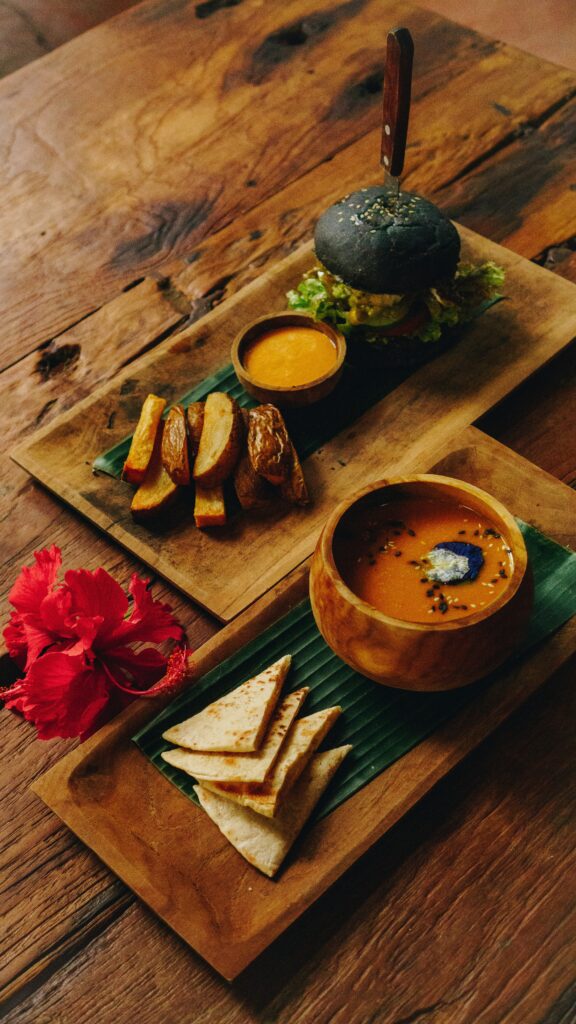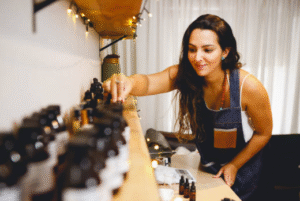In recent years, many Indian students in Canada have begun to explore the world of perfumery—not just as a hobby, but as a serious and unique career path. This growing interest is fuelled by a perfect mix of cultural heritage, creativity, and a rapidly expanding fragrance market in Canada. As Gen-Z Indian international students search for meaningful, artistic professions beyond traditional fields, perfume creation stands out as both a passion-driven and viable business opportunity.
Why Indian Students in Canada Are Exploring Perfume as a Career
Indian culture has always had a rich relationship with scent. Traditional Indian aromas such as sandalwood, jasmine, cardamom, and patchouli are not only nostalgic but are also gaining traction globally for their natural, grounding properties. These ingredients are now being reimagined in formats such as room spray perfume, body spray and perfume hybrids, and aqua perfume blends—products that are well-received in the Canadian market for their freshness and cultural uniqueness.
Canada’s perfume industry is experiencing steady growth, with the market projected to cross USD 1 billion by 2025. This upward trend makes it an ideal time for newcomers and young entrepreneurs to carve out a niche. Many Indian students are starting their journey by experimenting with perfume samples, creating decant perfume kits, and offering custom room spray perfume experiences for peers and local communities. This low-barrier entry approach helps them test their scents while gaining practical feedback in real-world Canadian settings.
Moreover, urban Canadian consumers—especially in Toronto, Vancouver, and Montreal—are actively seeking diverse, artisanal scents that differ from mainstream Western fragrances. Indian student perfumers are well-positioned to fill this gap by leveraging their knowledge of both Indian traditions and modern olfactory trends. Innovative products like car hanging perfume and luxury car perfume are being positioned not only as functional items but also as identity-driven lifestyle products for South Asian communities and beyond.
Another appeal of this career path is the freedom and flexibility it offers. Students can begin experimenting with a basic perfume base at home, or invest in a simple perfume dispenser to test formulas with friends and classmates. The ability to start small—through DIY kits and side projects—aligns perfectly with student budgets and immigration policies that limit work hours during academic terms. As such, perfumery provides a creative outlet, a career trial ground, and the potential to build a fully-fledged business after graduation or under a PGWP (Post-Graduation Work Permit).
Ultimately, perfumery allows Indian students in Canada to blend their roots with opportunity—to honour their sensory traditions while contributing to a global industry. Whether it’s through a decant perfume start-up, crafting signature room spray perfume lines, or selling luxury car perfume to an urban market, this career path is increasingly seen not just as different—but as desirable.
With Canada’s fragrance market projected to grow—reaching about USD 925 million in 2025 and rising toward USD 1.027 billion with ~5.5 % CAGR—there’s tangible career potential combining tradition and trend .
To see more about the occupation: Perfumer.
How to Start Your Journey as a Perfumer in Canada
You don’t need a chemistry degree; you can start with community college programs or online courses while managing scholarships and study permit responsibilities in 2025.
Starting your path toward becoming a perfumer in Canada begins with a genuine passion for fragrance and a willingness to learn the science and artistry behind scent creation. For Indian students studying in Canada, this career choice offers a unique blend of creativity, cultural expression, and niche professional opportunity.
The first step is education. While Canada doesn’t have mainstream undergraduate degrees specifically in perfumery, several colleges and private institutions offer short-term certificate programs and workshops in fragrance formulation, cosmetic science, and aromatherapy. Some of the most accessible programs are located in major cities like Toronto, Vancouver, and Montreal, where the beauty and wellness industries are actively growing.
Courses range from basic introductions to scent families and formulation techniques, to advanced programs covering olfactory evaluation, blending methods, and sustainable ingredient sourcing. Students can choose between in-person training or online learning platforms, depending on their schedules, language comfort, and learning style. Online courses are especially helpful for balancing part-time jobs or other academic commitments.
While a background in chemistry can be helpful, it’s not mandatory. Many successful perfumers come from diverse academic paths, including design, botany, and even marketing. What matters more is developing a strong olfactory memory, understanding raw materials, and gaining hands-on experience through mixing and experimentation.
Many Indian students find inspiration by drawing from their cultural heritage—blending traditional ingredients like sandalwood, jasmine, cardamom, or vetiver into modern scent profiles. This unique cultural lens offers a powerful point of differentiation in the Canadian fragrance market, especially among boutique brands and custom perfumery studios.
It’s also wise to start experimenting early. Beginners can purchase starter kits or lab tools to practice at home—droppers, scent strips, and dilution bases are often affordable and accessible online. Small-scale projects like creating personal blends or gifting friends and family are great ways to refine your nose, gather feedback, and build confidence.
Eventually, you’ll need to understand the business and legal side. As you move toward creating a brand or selling your own fragrances, familiarize yourself with Health Canada regulations, labelling requirements, and intellectual property protections. If you’re on a student visa, launching a business may not be allowed immediately—but planning ahead for post-graduation opportunities can set you up for a smooth transition.
In short, becoming a perfumer in Canada starts with curiosity, creativity, and a commitment to learning the craft. With growing interest in artisan and multicultural fragrances, Indian students are well-positioned to make their mark on this evolving industry.
Canadian schools or workshops may offer short training on fragrance formulation and using perfume base materials; alternatively, you can study remotely from Indian perfumery gurus.
Canadian study permits in 2025 still allow up to 20 hours/week of off‑campus work, so you can engage in decant perfume sampling or car hanging perfume creation projects alongside your studies—though full business operations must wait until you get a PGWP or open work permit.
Career Paths for Aspiring Perfumers in Canada
Post‑study, you can join fragrance houses or cosmetic brands in cities like Toronto, Montreal, or Vancouver, or launch a niche perfume line inspired by Indian aromas.
Aspiring perfumers in Canada have a range of career opportunities after completing their studies. Major cities like Toronto, Montreal, and Vancouver are home to fragrance houses, cosmetic labs, and boutique beauty brands where graduates can begin as junior scent evaluators, formulation assistants, or product developers. Larger companies such as L’Oréal Canada or Estée Lauder may offer roles in research and development or fragrance marketing. For those interested in wellness and natural living, aromatherapy is another promising path—many perfumers work with essential oils to develop therapeutic blends used in spas, yoga studios, and mental wellness products. This field is especially relevant given Canada’s growing focus on holistic health and sustainable beauty.
For entrepreneurial-minded individuals, launching a niche perfume brand is a compelling option. With rising demand for culturally unique and small-batch fragrances, Indian students in particular have the opportunity to infuse traditional ingredients like sandalwood, rose, cardamom, or vetiver into modern scent compositions. Starting small through online platforms like Etsy or Shopify, or selling at artisan markets and multicultural festivals, allows new perfumers to test their products and build a loyal customer base. Some also explore the world of scent branding—designing signature fragrances for hotels, boutiques, or events, combining creativity with business strategy in the field of experiential marketing.
Over time, perfumers may also branch into teaching, writing, or content creation. Hosting workshops, sharing techniques on YouTube, or reviewing fragrances through blogs can help build personal brands while educating others. These flexible paths are especially valuable for international students who may be transitioning between study permits and work visas. After graduation, the Post-Graduation Work Permit (PGWP) allows students to stay and gain Canadian work experience, which can eventually lead to permanent residency. With dedication, creativity, and a unique cultural perspective, aspiring perfumers can find rewarding careers across Canada’s evolving and diverse fragrance industry
| Path | Description | Example |
|---|---|---|
| Fragrance Laboratory | Assist with formulations, QA, and testing. | Entry-level roles at cosmetics firms in Toronto. |
| Own Brand | Create and sell bespoke perfumes, like body spray and perfume blends or luxury car perfume lines. | “Modern Attars” brand offering car fragrance and room spray perfume. |
| Events & Weddings | Design custom scents for Indian weddings or festive occasions. | Bespoke wedding scents for Diwali or Holi celebrations. |
Starting with perfume samples or a perfume dispenser for demos lets you test market demand while you study.
Essential Skills, Tools, and Certifications to Succeed
Perfumery combines creative scent layering and technical formulation, including knowledge of perfume base, blending, scent structure, and safety standards.
Success in perfumery requires a unique blend of artistic intuition and scientific understanding. Aspiring perfumers must develop a strong olfactory memory, the ability to identify and recall hundreds of scent notes across categories like floral, woody, citrus, and oriental. Equally important is the understanding of scent structure—top, middle, and base notes—and how they evolve over time. Creativity plays a major role in composing harmonious blends, but technical knowledge of fragrance families, accords, and formulation principles is what sets professionals apart.
Equipping yourself with the right tools and materials is key for hands-on learning. Beginners should invest in essential lab items such as droppers, beakers, scent strips, digital scales, and dilution bases (like ethanol or carrier oils). Access to raw materials, both natural and synthetic, is crucial to practice accurate blending and stability testing. Software for formulation tracking and IFRA compliance checks is also useful for those planning to create sellable products. Keeping a well-organized scent journal and formula database helps in refining techniques and documenting creative experiments. (Scroll down we provide a simple formula that you can try it out first!!)
To advance professionally, pursuing relevant certifications and training is highly recommended. While not mandatory, completing courses in cosmetic science, organic chemistry, aromatherapy, or fragrance formulation from recognized institutions—either in Canada or online—can significantly enhance your credibility. Certifications from bodies like IFRA (International Fragrance Association) and Health Canada’s Cosmetic Notification System are essential if you plan to sell products legally. These qualifications not only build trust with clients and employers but also ensure your creations meet safety and regulatory standards.
| Tools | Purpose | Example |
|---|---|---|
| DIY Kit | Practice blending top/middle/base notes. | Starter set with aqua perfume and decant perfume vials. |
| Software/Database | Track scent profiles and formulations. | Osmoz or Fragrantica digital scent log. |
| Certification | Build credibility in the absence of regulation in Canada. | Online courses via ISIPCA or International Perfume Foundation. |
Since Canada doesn’t regulate perfumers, recognized credentials from global organizations boost your trustworthiness, especially when promoting luxury car perfume, room sprays, or body spray and perfume combinations.
How to Build Your Personal Perfume Brand as a Student in Canada
Start by creating a unique brand that blends Indian scent memories with modern aesthetics. For instance, develop collections like a “Chai Spiced Room Spray” or a “Sanskrit Attar Collection” that includes versatile products such as car hanging perfumes and body sprays. This fusion not only honors your cultural heritage but also appeals to a wider, trend-savvy audience seeking authentic yet contemporary fragrance experiences.
Leverage social media platforms like Instagram, TikTok, and YouTube to showcase your perfume-making journey. Share engaging content such as decant perfume trials, sample giveaways, and behind-the-scenes videos demonstrating how you dispense and blend your fragrances. Focus your marketing efforts on the Indian-Canadian community by using culturally relevant hashtags and storytelling to create a loyal and interactive following.
Finally, connect directly with your target audience by collaborating with Indian Student Associations at universities and participating in cultural events. Offer sample giveaways—such as room sprays, body sprays, or combo perfume packs—to generate organic interest and word-of-mouth promotion. These grassroots efforts help you build brand awareness, receive valuable feedback, and foster a supportive community around your unique scent creations.
Simple Perfume Recipe
Easy steps to create your own fragrance at home or in the lab!
Ingredients:
- 70 ml Perfumer’s alcohol (or 95% ethyl alcohol)
- 20 ml Distilled water
- 10 ml Essential oils total:
- 3 ml Top notes (e.g., lemon, peppermint)
- 5 ml Middle notes (e.g., lavender, rose)
- 2 ml Base notes (e.g., sandalwood, vanilla)
- Optional: 1 ml Glycerin (for smoothness)
A Video that Might Help You Get to know Perfumers More:
People Also Ask: Common Questions Answered
1. Can I start creating and selling car hanging perfume or room spray perfumes while on a study permit?
Yes—as long as you don’t exceed 20 hours of work per week and treat it as a hobby or sample-based activity; full business operations such as selling to the public or registering a company must wait until you have PGWP or open work permit :contentReference[oaicite:2]{index=2}.
2. What is the size of Canada’s fragrance or perfume market I’m entering?
Canada’s fragrance market generated approximately US$925 million in 2025 with strong growth projected; the broader perfume sector is expected to reach over USD 1 billion soon, showing both mainstream and niche opportunities :contentReference[oaicite:3]{index=3}.
3. How can I incorporate long-tail products like eau-de-parfum, body spray and perfume, or room spray perfume into my offerings?
Start small—create decant perfume sets, mix customized body spray and perfume blends, or curate room spray perfume collections—testing audience preferences while building toward larger formats like luxury car perfume bottles.
By blending Indian traditions with modern Canadian fragrance trends and smart SEO emphasis on terms like “decant perfume,” “perfume base,” “car hanging perfume,” “luxury car perfume,” “perfume dispenser,” “perfume samples,” “room spray perfume,” “aqua perfume,” and “body spray and perfume,” you’re positioning yourself for success in a growing, culturally resonant market in 2025.
References:
https://www.fleursdevilles.com/post/the-perfumers-garden-at-versailles
https://www.ellecanada.com/beauty/fragrance/meet-three-women-doing-scent-their-differently
Sonia specializes in the Canadian education system, from K–12 admissions to college and university placements for international students. With hands-on experience working with schools, education consultants, and immigration advisors, she provides clear, practical advice on visas, guardianship, academic programs, and student life in Canada.





